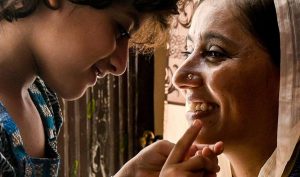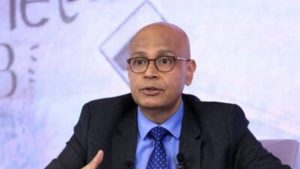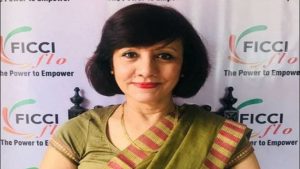VisionIAS
20:31

1) International Missing Children’s Day: 25th May
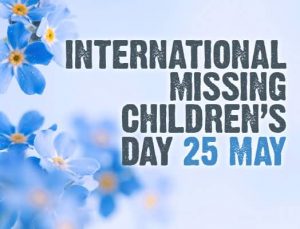
2) World Thyroid Day celebrated on 25 May
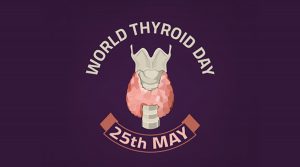
•This day is established in 2008 as a part of the campaign led by European Thyroid Association (ETA) and the American Thyroid Association(ATA) followed by Latin American Thyroid Society(LATS) and Asia Oceania Thyroid Association (AOTA) to commemorate the patients with Thyroid diseases and doctors and physicians who treat them.
3) India handsover war game centre named as “INDIA” to UPDF
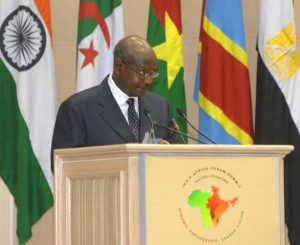
•Gen. Yoweri Kaguta Museveni, President of the Republic of Uganda inaugurated the war game centre “INDIA” that was conceptualised by the Indian Military Team and built by the IAU in Jinja district, at a cost of over 1 billion Ugandan shillings or $2,65,000. The Ugandans of Indian origin made voluntary contributions for the establishment of war game centre.
4) Former SC judge, A K Sikri inaugurates IDRC
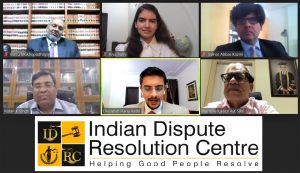
•The Arbitration panel of the centre has former judges of the supreme court, high court, district courts, senior advocates, former bureaucrats and others. The software provides 24×7 facilities for e-filing of claim petitions, e-Payments for registration and administrative fees, issuance of e-notice to the party, virtual hearings on certified VC platforms with options to possess virtual meetings in escape rooms when the proceedings are underway.
•The e-ADR has a digital signature and document updation, replies and other applications and submission on secured IDRC cloud servers with 24×7 access to stakeholders and lawyers.
5) Indian Navy formed “NavRakshak” breathable PPE kit
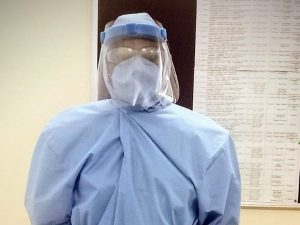
•The ability of the material to permit water vapour to undergo and stop the water from entering is understood as Breathability. This PPE kit made by Surgeon Lieutenant Commander Arnab Ghosh from Naval Medical Specialist of Innovation Cell, Institute of Naval Medicine in Mumbai.
•The comfort properties of the material depend on their ability to transmit the water and vapour from the body and preventing the buildup of liquid on the skin. The PPE passed the Synthetic blood penetration resistance test with 6/6 (Government of India mandates minimum 3/6 and above as per ISO 16603 standard ) pressure certified for mass production and to be used in clinical COVID-19 situations.
6) GoI launches initiatives towards Conservation of Biodiversity
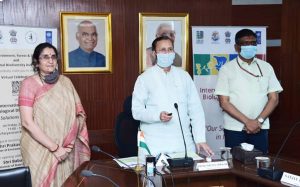
During the virtual celebration of the International Day for Biological Diversity 2020, the Government of India launched key initiatives towards Conservation of Biodiversity. These initiatives are as follows:
1.National Biodiversity Authority (NBA) and United Nations Development Programme (UNDP) “Biodiversity Samrakshan Internship Programme” were launched by the Union Environment Minister. This program envisages to engage 20 students with postgraduate degrees for a duration of one year via an open, transparent, online competitive process. These students will learn about natural resource management and biodiversity conservation. Hence they will be supporting the projects of NBA in various State and Union Territories. They would also be responsible to technically help the State Biodiversity Boards/UTs Biodiversity Council in discharge of their mandates.
2.Not all Animals Migrate by Choice: UNEP Campaign on Illegal Trafficking of Endangered Species: ‘Not all Animals Migrate by Choice’ waas also launched during the celebration. This campaign was launched by the Wildlife Crime Control Bureau in association with UNEP. The launch of campaign aims to address the environmental challenges, to raise awareness, and to recommend solutions.
3.Biodiversity Conservation and Biological Diversity Act, 2002: A Webinar Series on ‘Biodiversity Conservation and Biological Diversity Act, 2002’ was launched during the virtual event.
4.WWF Model Conference of Parties (MCoP): An initiative “WWF Model Conference of Parties (MCoP)” was launched during the virtual event. This initiative includes the younger generation so that they can participate in conversations regarding the impact of humanity’s footprint on biodiversity, as well as the importance of sustenance of biodiversity for our own survival.
5.During the virtual event, an awareness campaign was launched to highlight the crucial role played by nature via its free ecological services offered to humankind. This campaign was launched with the support of WWF.
7) Manipur’s “Khudol” listed among the top 10 global initiatives
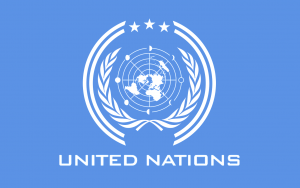
•Manipur’s “Khudol” has been listed among the top 10 global initiatives for an inclusive fight against the COVID-19 pandemic. The listing of the initiative among the top 10 global initiatives was done by the United Nations Secretary-General’s Envoy on Youth. “Khudol” initiative was launched by an Imphal-based NGO “Ya_All”.
•Food, health and hygiene requirements of the LGBTQI+ community, people living with HIV, daily-wage earners, children and adolescents is being ensured through the initiative “Khudol”. It is a crowdfunded initiative which has mobilised a network of 100 volunteers, to fulfill basic needs of around 2,000 families and individuals.
8) REC Limited & TajSATS to provide meals to frontline healthcare workers
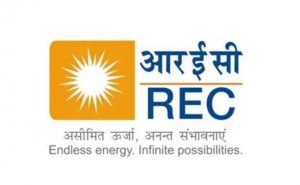
•REC Limited has partnered with TajSATS, a joint venture of IHCL and SATS Ltd, to provide nutritious meals to frontline healthcare workers. Both entities are leading the mission to provide meals to the medical staff in key government hospitals along with poor daily wage labourers across the nation. Over 18,000 meals are planned to be delivered in New Delhi through this initiative.
•REC Limited is a Navratna NBFC which has distributed more than 4.58 lacs Kilograms of food grains, 1.26 lac meal packets, 9600 litres of sanitizers, 3400 PPE kits and 83000 masks across the nation amid the nationwide lockdown due to COVID-19 pandemic.
9) Raksha Mantri Rajnath Singh chairs SIDM MSMEs E-conclave
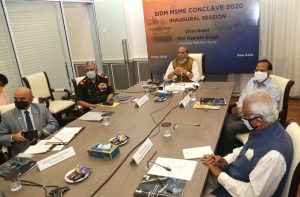
•Micro, Small and Medium Enterprises (MSMEs) E-conclave was chaired by the Raksha Mantri Rajnath Singh. The virtual conference of MSMEs E-conclave was organised jointly by the Department of Defence Production, Confederation of Indian Industry (CII) and Society of Indian Defence Manufacturers (SIDM).
•The E-conclave was held with the theme ‘Business Continuity for MSMEs in Defence & Aerospace Sector’. The conclave featured the participation of more than 800 Defence MSMEs units.
•During the conclave, Raksha Mantri Rajnath Singh emphasized and applauded the role played by Society of Indian Defence Manufacturers (SIDM) and other Micro, Small and Medium Enterprises (MSMEs) in India’s fight against global COVID-19 pandemic.
10) WHO & IOC team up to improve health through sport
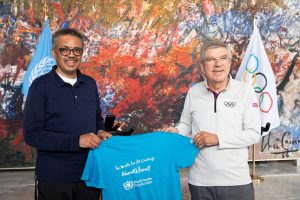
•The World Health Organization (WHO) and the International Olympic Committee (IOC) has signed an agreement to work together to promote health through sport and physical activity. They have teamed up to fight the battle against Covid-19.
•The partnership is to work with host countries to ensure Health of athletes, supporters and workers at the games. The two organisation will also work to ensure that the games leave a healthy legacy in host countries through enhanced awareness of the value of sport.



